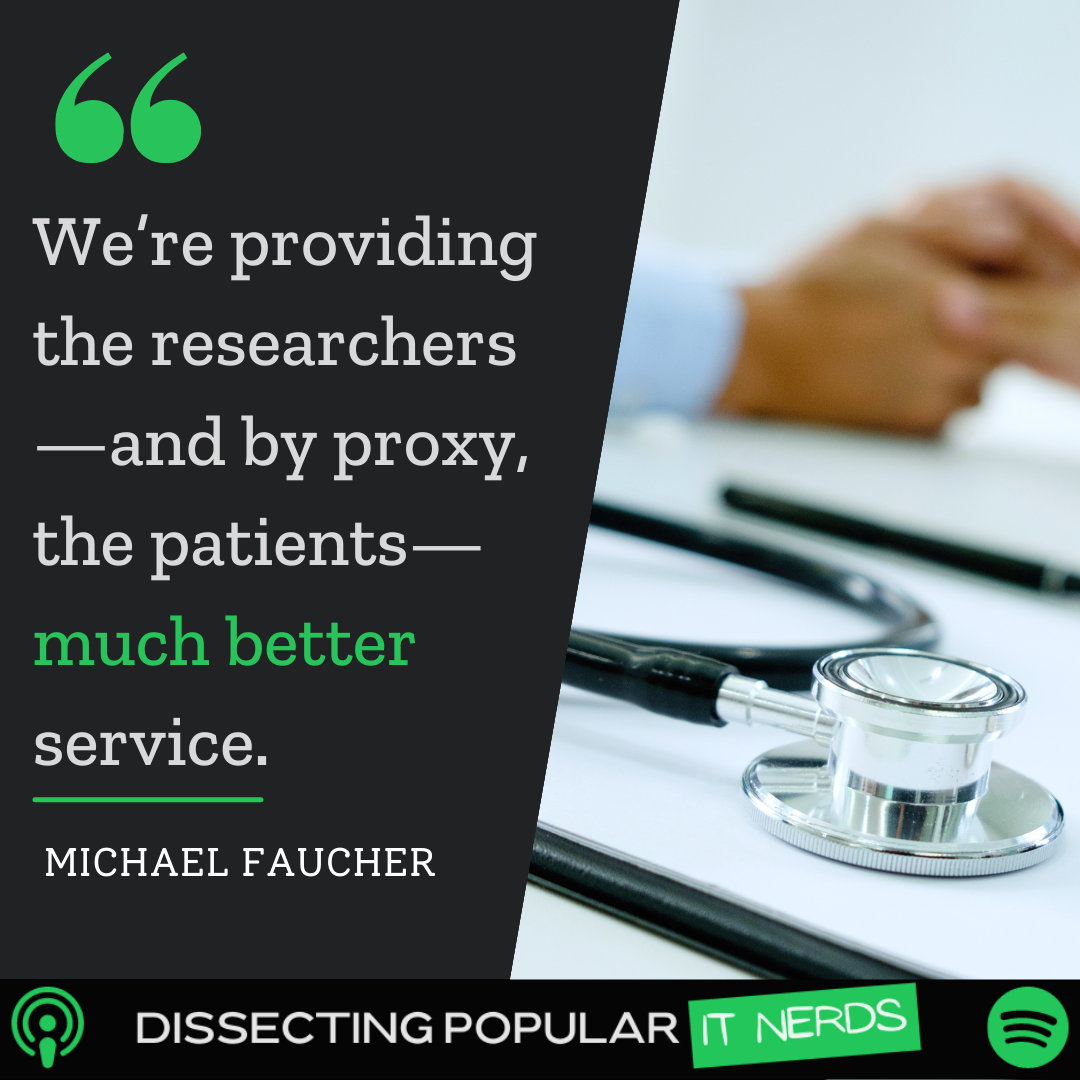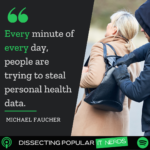[0:37] What is translational immunology?
I get asked that all the time. Translational immunology is a means by which multiple disciplines come together to find common solutions to immunological problems.
[2:34] Imagine your CEO launches a new app. He asks you an important question: What do you name it?
I had this problem in graduate school—I had to name an application I came up with. I had a hard time. I would call it Feezle. You need something with a fun hook to it: “Did you Feezle today?”
[4:14] Standing desk or sitting desk?
Oh, definitely a sitting desk. I tried standing for a while and I got fidgety. There are times I want to sit back, put my feet up, and contemplate.
[7:41] One interesting thing I found when researching you is that you used to be a journalist.
Yes, I was. I went to university to be an English major and I became a reporter for a local newspaper. We would get news over the wire—a fax machine. But I saw the direction the news was going—the writing on the wall—and I knew eventually the news would dispel itself to the masses. It’s a long story, but eventually I found myself working as an IT technician for a transplantation biology research center—totally by luck.
[14:46] I want to talk about resource requirements and how you’re going into this next phase of data organization, especially if you require a lot of storage.
At the Columbia Center for Translational Immunology, we’re able to pool our grant money and resources to provide tools above and beyond what the university will provide. We’re in one of the older buildings on campus, and the networking infrastructure is about to undergo a serious upgrade. I am reliant upon the university and their funding to provide faster network speeds for all our users.
[22:26] I think there are some state requirements as well for research done on people who are underage.
You do need to get parental consent. For instance, we will ask patients for tissue samples if they are getting an organ transplant. We get those from the donor and recipient. We do deal with sensitive data when it comes to some of our mouse studies. Our medical center is hammered every day by people trying to get into our network to steal that data.
[25:25] Big ER systems have helped patients get information easier, but it’s quite a big project.
And it also takes just as long to train the users. Almost just as long to take it on.
[29:08] Tell us more about your user experience writing. How do you implement that in your field?
The first thing is simply asking questions. I can’t tell you how many brilliant scientific minds I’ve seen—researchers and students—that are baffled by a Windows box. I have an extensive IT orientation with everyone that comes on, regardless of their experience.
[35:56] Why is it so important, no matter what title you carry, to stay on the front lines and understand what’s going on?
It’s a matter of providing your customers with the best solutions. I know the challenges my team runs into day in and day out. If an application we’ve partnered with is no longer sufficient, I know we have an issue that needs to be addressed. It’s more exciting to be part of that stuff.
[40:48] Staying close to the front lines is a great thing because you have more control over the user experience, and you can shape it to be more strategic.
That’s exactly it. When you go in front of a board or a dean, you have active knowledge about the problems the IT team is having. You have to be able to convince the upper echelons of the university where the value add is.
[46:30] I would love to hear what you see for the future of IT specifically in research and development.
I think despite recent challenges, the broad consensus is IT has saved a lot of businesses. Everyone could still continue their work and research unabated. What I see coming down is virtual modeling, virtual mice, and virtual primates.



